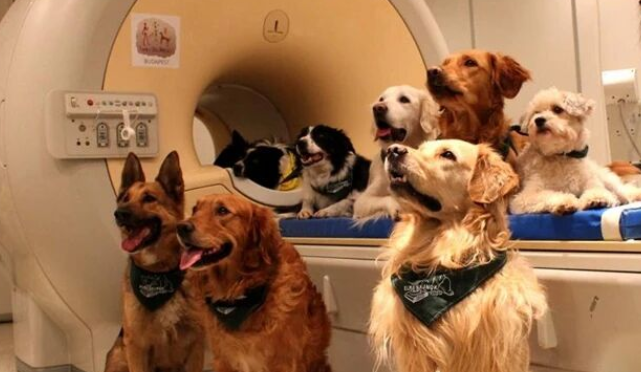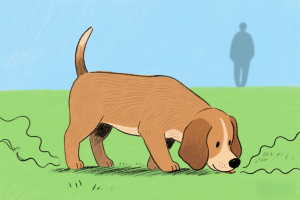What? There Are Still People Who Abuse Dogs?Unbelievable — how can anyone still abuse a dog in this day and age?You must understand, such behavior is not only cruel and ignorant, but also completely foolish.It’s not just about physical abuse — even verbally scolding or yelling at your dog can cause emotional harm.Recent scientific studies have confirmed that dogs can understand thousands of individual human words.So remember this: “When you stare into the abyss, the abyss stares back at you.”When you shout at your dog, chances are, your dog is judging you right back — and maybe, in its own way, talking back too.
-
How the Human Brain Reacts to Praise
When humans hear words of praise, the brain reacts in two distinct stages.First, the primitive subcortical auditory regions respond to tone, rhythm, and emotional intensity — this is the instinctive part of our hearing.Then, the more evolved auditory cortex begins to analyze and interpret the meaning behind those words.When people are praised, the brain releases large amounts of oxytocin and endorphins — two hormones that create feelings of closeness, trust, and happiness.These chemicals are especially important in early brain development, helping us bond and feel emotionally secure.When oxytocin flows through the brain, we naturally become more trusting, more patient, and more resilient when facing disappointment or betrayal.But when we’re criticized, the opposite happens — the amygdala, our brain’s emotional alarm center, is triggered.Hearing words like “It’s all your fault!” or “You’ve let me down!” automatically sets off stress signals, preparing the body to defend or fight back.

-
How Dogs React to Praise
Neuroimaging studies reveal something fascinating:When dogs hear praise, their left brain processes the words themselves, while the right brain processes the tone of voice — exactly the same way human brains handle language!Some people assume dogs’ brain functions are reversed from humans, but that’s actually a misunderstanding — the difference is simply posture during MRI scans.Humans lie flat during MRI, while dogs are trained to stay still in a prone position.Roughly 100 million years ago, humans and dogs shared a common ancestor.Although evolution took us down different paths, our brains still retain striking similarities in how we process sound and emotion.Dogs were the first animals ever domesticated by humans, and that shared history still shapes how we understand each other.When both humans and dogs hear words of praise, the reward centers of the brain become highly active.MRI scans show that dogs’ auditory cortex and subcortical regions light up significantly only when praise is spoken in a genuinely positive tone.In other words, dogs can recognize thousands of individual human words, but tone matters just as much as meaning.To train for these experiments, scientists spent months conditioning over a dozen dogs — including Golden Retrievers, Labradors, and Border Collies — to stay completely still during MRI scans.Interestingly, these breeds also happen to represent the top tier of canine intelligence.
All of This Proves One Thing — Dogs Are Smarter Than You Think.Everything we’ve discussed so far points to one undeniable truth: dogs are incredibly intelligent.And when it comes to praise and criticism, dogs and humans share remarkably similar emotional responses.So, instead of yelling at your dog — praise it more.When you offer genuine praise, amazing things can happen.There’s a saying in psychology known as the Pygmalion Effect — the idea that positive expectations and sincere encouragement can create real change.This term comes from Greek mythology.Pygmalion, a talented sculptor, created a beautiful statue of a woman and eventually fell deeply in love with her.Every day he would embrace it, kiss it, and whisper words of admiration.His devotion moved the goddess Aphrodite, who brought the statue to life — and Pygmalion married his creation.Psychologists later used this myth to describe a real-life phenomenon:when you believe in someone and praise them sincerely, that belief can inspire them to become better.The same principle applies to your dog.If you want your furry companion to become a well-behaved, confident, and loving pet, don’t hold back your praise.Say it from the heart — “Good dog!” — and your dog will understand your emotion, feel your approval, and try even harder to please you.Because, just like humans, dogs thrive on love, affirmation, and emotional connection.





